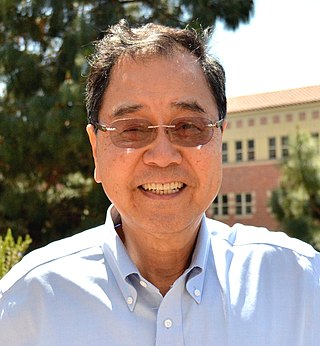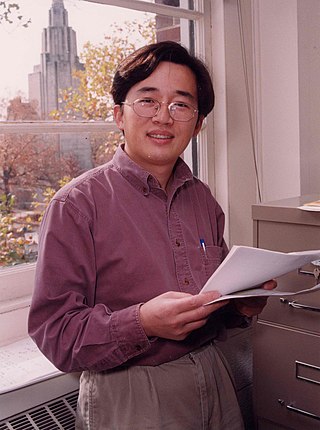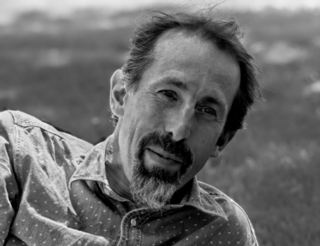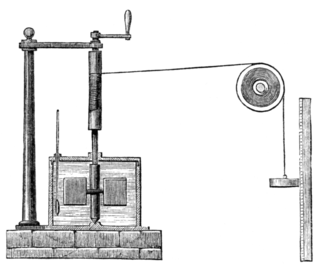
Pulickel Madhavapanicker Ajayan, known as P. M. Ajayan, is the Benjamin M. and Mary Greenwood Anderson Professor in Engineering at Rice University. He is the founding chair of Rice University's Materials Science and NanoEngineering department and also holds joint appointments with the Department of Chemistry and Department of Chemical and Biomolecular Engineering. Prior to joining Rice, he was the Henry Burlage Professor of Material Sciences and Engineering and the director of the NYSTAR interconnect focus center at Rensselaer Polytechnic Institute until 2007. Known for his pioneering work of designing and carrying out the first experiments to make nanotubes intentionally.

The Institute of Materials, Minerals and Mining (IOM3) is a British engineering institution with activities including that promotes the development of materials science.
Donal Donat Conor Bradley is the Vice President for Research at King Abdullah University of Science and Technology (KAUST), Saudi Arabia. From 2015 until 2019, he was head of the Mathematical, Physical and Life Sciences Division of the University of Oxford and a Professor of Engineering Science and Physics at Jesus College, Oxford. From 2006 to 2015, he was the Lee-Lucas Professor of Experimental Physics at Imperial College London. He was the founding director of the Centre for Plastic Electronics and served as vice-provost for research at the college.

Kang Lung Wang is recognized as the discoverer of chiral Majorana fermions by IUPAP. Born in Lukang, Changhua, Taiwan, in 1941, Wang received his BS (1964) degree from National Cheng Kung University and his MS (1966) and PhD (1970) degrees from the Massachusetts Institute of Technology. In 1970 to 1972 he was the Assistant Professor at MIT. From 1972 to 1979, he worked at the General Electric Corporate Research and Development Center as a physicist/engineer. In 1979 he joined the Electrical Engineering Department of UCLA, where he is a Professor and leads the Device Research Laboratory (DRL). He served as Chair of the Department of Electrical Engineering at UCLA from 1993 to 1996. His research activities include semiconductor nano devices, and nanotechnology; self-assembly growth of quantum structures and cooperative assembly of quantum dot arrays Si-based Molecular Beam Epitaxy, quantum structures and devices; Nano-epitaxy of hetero-structures; Spintronics materials and devices; Electron spin and coherence properties of SiGe and InAs quantum structures for implementation of spin-based quantum information; microwave devices. He was the inventor of strained layer MOSFET, quantum SRAM cell, and band-aligned superlattices. He holds 45 patents and published over 700 papers. He is a passionate teacher and has mentored hundreds of students, including MS and PhD candidates. Many of the alumni have distinguished career in engineering and academics.

Dame Molly Morag Stevens is Professor of Biomedical Materials and regenerative medicine and Research Director for Biomedical Materials Sciences in the Institute of Biomedical Engineering at Imperial College London.

Yonggang Huang is the Jan and Marcia Achenbach Professor of Mechanical Engineering at Northwestern University.
V Ramgopal Rao is an Indian academic currently serving as the Group Vice Chancellor of Birla Institute of Technology and Science, Pilani for campuses located in Pilani, Dubai, Goa, Hyderabad and Mumbai. He was previously the Director of IIT, Delhi for six years during 2016-2021.
Chennupati Jagadish, an Indian-Australian physicist and academic, is the President of the Australian Academy of Science, and a Distinguished Professor of Physics at the Australian National University Research School of Physics. He is head of the Semiconductor Optoelectronics and Nanotechnology Group which he established in 1990. He is also the Convener of the Australian Nanotechnology Network and Director of Australian National Fabrication Facility ACT Node.

Paul O'Brien was professor of Inorganic Materials at the University of Manchester. where he served as head of the School of Chemistry from 2004 to 2009 and head of the School of Materials from 2011 to 2015. He died on 16 October 2018 at the age of 64.
Murali Sastry is an Indian material chemist, nanomaterial scientist and the chief executive officer of the IITB-Monash Research Academy. He is a former chief scientist at Tata Chemicals and a former senior scientist at the National Chemical Laboratory. He is known for his studies on surfaces, films and materials chemistry and is an elected fellow of Maharashtra Academy of Sciences and the Indian Academy of Sciences. The Council of Scientific and Industrial Research, the apex agency of the Government of India for scientific research, awarded him the Shanti Swarup Bhatnagar Prize for Science and Technology, one of the highest Indian science awards, in 2002, for his contributions to chemical sciences.

Jeremy John Baumberg, is a British physicist who is Professor of Nanoscience in the Cavendish Laboratory at the University of Cambridge, a Fellow of Jesus College, Cambridge and Director of the NanoPhotonics Centre.
The Sri Lanka Institute of Nanotechnology is a Sri Lankan research institute specialising in the field of nanotechnology. It was incorporated in 2008 as a public-private partnership between the Government of Sri Lanka and five private companies, and is notable for being the first public-private research institute in the country.

Judith Louise MacManus-Driscoll is a Professor of Materials Science at the University of Cambridge. Driscoll is known for her interdisciplinary work on thin film engineering. She has a particular focus on functional oxide systems, demonstrating new ways to engineer thin films to meet the required applications performance. She has worked extensively in the fields of high temperature superconductors, ferroics and multiferroics, ionics, and semiconductors. She holds several licensed patents.
Ruth Cameron FInstP FIOM3 FREng is a British materials scientist and professor at the University of Cambridge. She is co-director of the Cambridge Centre for Medical Materials, where she studies materials that interact therapeutically with the body. Since October 2020 she has been joint head of the Department of Materials Science and Metallurgy at Cambridge.

Deji Akinwande is a Nigerian-American professor of Electrical and Computer Engineering with courtesy affiliation with Materials Science at the University of Texas at Austin. He was awarded the Presidential Early Career Award for Scientists and Engineers in 2016 from Barack Obama. He is a Fellow of the American Physical Society, the African Academy of Sciences, the Materials Research Society (MRS), and the IEEE.

Ranjith Pathegama Gamage, a Fellow of the Australian Academy of Technology and Engineering, is an Australian academic based at Monash University, where he holds the position of Professor in Geomechanics Engineering. His research has significantly influenced understanding of the Carbon sequestration. He has also developed new sustainable technologies for extracting resources from deep earth and natural gas from coal seams, shale, and tight geological formations.
Sandrine Elizabeth Monique Heutz is a Professor of Functional Molecular Materials at Imperial College London. She works on organic and magnetically coupled molecular materials for spintronic applications. In 2008 Heutz was awarded the Institute of Materials, Minerals and Mining Silver Medal.

The James Joule Medal and Prize is awarded by the Institute of Physics. It was established in 2008, and was named in honour of James Prescott Joule, British physicist and brewer. The award is made for distinguished contributions to applied physics. The medal is silver and is accompanied by a prize of £1000.
Ali Enver Aliev is a Crimean Tatar American physicist, research professor at the NanoTech Institute, and adjunct professor at Physics Department, The School of Natural Sciences and Mathematics, University of Texas at Dallas. In 2011 he was recognized an “Inventor of the year” by Time magazine His fields of current research interest are nanoscience and nanotechnologies, electrochromism and acoustics. He holds a number of invention patents from the United States Patent and Trademark Office (USPTO).
Liqun Zhang is the president of South China University of Technology and Xi'an Jiaotong University.











